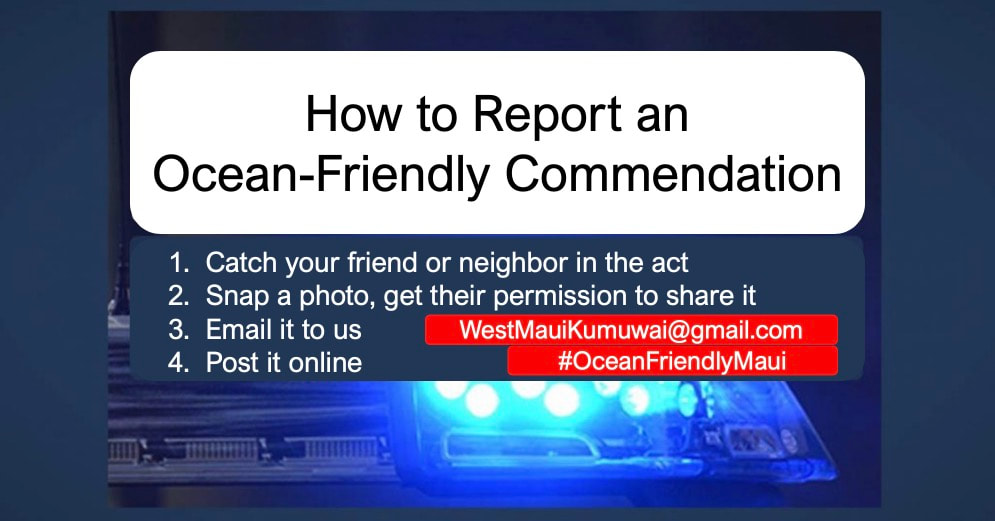 In these uncertain times, it’s up to all of us to stay vigilant. COVID-19 is bringing unwelcome threats to Maui, and we’re being asked to report violations. How much do you really know about what your friends and neighbors are up to? Or, maybe they aren’t flouting the rules, but they are just nauseatingly perfect when it comes to the environment? Like always recycling, driving a hybrid car, even VOTING. How annoying. They deserve to be called out. Well, here at West Maui Kumuwai we have the perfect opportunity for you... Of course we’re being ridiculous, we love our local environmental heroes. If you’ve been following along since April, you saw that we launched an Earth Month activity to allow people to share their ocean-friendliness. As part of that, we purchased and gave away gift cards for essential Maui businesses that were able to stay open during the earliest days of the coronavirus pandemic. We mailed them out to anyone who sent in a photo of themselves being ocean-friendly in various ways, and between April and August, we received dozens of amazing pictures and gave away hundreds of dollars in gift cards to support local Maui businesses. Thank you to everyone who participated! GOOD NEWS, we still have a lot of gift cards on hand, so we’re rebooting the concept. NOW, in an attempt to keep some positive vibes rolling during a time when we’re surrounded by anything but, we’d like to ask Maui residents to send in photos of their friends, family, and neighbors doing any of the ocean-friendly activities we have been promoting. That’s right, catch them in the act, share a photo and tell us about their ocean-friendly behavior, and we’ll send you a gift card, while they last. Each week we’ll highlight a new behavior and provide tips and resources on our website and social media feeds. To kick this off, this week we’re featuring ocean-friendly car washing. Check out our first post in the series and be on the lookout! Thank you to everyone who posted or sent in photos for our #MauiEarthMonth2020 experiment while in lockdown! Well, it's now May, we're still doing social distancing, AND we have a LOT MORE gift cards to give away, so we're extending our "Earth Month" activities through the summer. We'll give you a $25 gift card to one of several essential businesses that are still open (CJ's Deli & Diner, Sea House at Napili Kai, Down the Hatch, Maui Diving Scuba & Snorkel Center, West Maui Sports & Fishing Supply, Maui Sporting Goods, New Maui Fishing Supply, and Ace Hardware Lahaina) - all you (Maui residents) have to do is send us (and preferably post on your own social media, too) a photo of you and/or your family doing one of the ocean-friendly activities, below.
Doing some yard or garden renovation during the stay at home orders? Make it ocean-friendly!4/17/2020
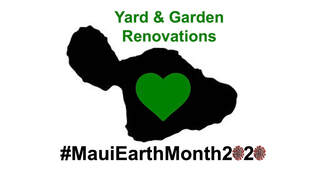 If you’ve been following our series of “quarantine-friendly” Earth Month activities , you might already be working on a Victory Garden, or have plans to start one. Or, you might be ambitious enough to consider some more extensive yard and garden renovations. If this is the case, we have some tips for you to build in some ocean-friendly practices. And as a BONUS, the first four Maui households who send us a photo of themselves with their yard or garden renovation project (that we can share on our website & social media) will receive $25 gift certificates to Ace Hardware in Lahaina, to help you get the supplies you need! Details below. Tip #1. Change up your irrigation. Save water, money, and time. Consider switching to drip irrigation, or get a newfangled timer that links to the weather, these save water too. Tip #2. Install a rain garden. Whether a spot in your yard that floods, or the place you always wash down your boards, a rain garden is a beautiful way to help with infiltration. More information can be found here, and via this fantastic Hawaii Residential Rain Garden Manual. Tip #3. Install some LIDs. “LID” = Low Impact Design, which is a more sustainable way of managing stormwater runoff in the built environment. While some LIDs are more extensive forms of infrastructure requiring complicated architectural design, a lot are simple and low-cost, such as redirecting a downspout, putting in semi-permeable pavers, or doing some erosion-control by planting on a slope. Definitely something you can do at home! For examples of these, check out some we spotted in Honokowai. Tip #4 Plant pono. Put in or swap out for some native plants and/or drought-tolerant species. They will use less water and be more appropriate for the landscape. Gift card giveaway details: As noted, we have several Ace Lahaina gift cards to give away on a first-come, first-serve basis to Maui residents, just email us a photo of you with your project (feel free to share it on your own social media too, using #MauiEarthMonth2020) and include the name of the person who will be going in to Ace Lahaina to pick it up and do the shopping. Ace has special hours at the moment (8 am - 5 pm) and is limiting shoppers' access to 10 at a time. 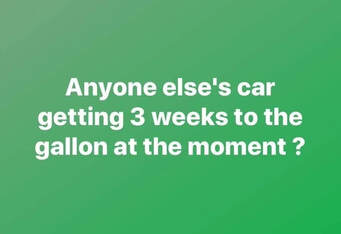 You may not be driving your car much at the moment, but perhaps it could use a wash. And if you have kids, perhaps you need an activity to get them out of your face...we mean, give them a chance to get some fresh air outdoors while still on your property. Car-washing is one of the activities that can contribute to pollutants reaching the ocean via storm drains. Not just the soap you use, but all the stuff like oil and grease and toxic heavy metal particles gets washed off and can then end up in the nearest waterway. However, there are a few things you can do to make your car-washing efforts more ocean-friendly. So our next post in our “quarantine-friendly” #MauiEarthMonth2020 series is focused on a few tips for ocean-friendly car washing. The best thing to do is take your car to a commercial car wash, since they use less water and the water is recycled and treated, meaning it doesn’t get into the nearby storm drain. While we’re all under stay at home orders at the moment though, you’re left with washing it at home. Tip #1. Wash it on your lawn. Biological action will help deal with the pollutants rather than sending them directly into a storm drain via the wash water. But once you're done, dump your bucket of excess wash water down the sink or into a toilet anyway. Tip #2. Use a nozzle. This will conserve water, which is always a good thing. Tip #3. Use a nontoxic biodegradable cleanser. We have used Shaklee’s Basic H and it has worked well. It's super concentrated so one bottle will go a long way. However, you won’t see a lot of suds which is FINE. Let Tova tell you why in this video from our first-ever ocean-friendly charity car wash, starting at 2:25. BONUS! Maui residents: post on social media using #MauiEarthMonth2020 and email us a screenshot of your social media post of your kids or yourself washing your car the ocean-friendly way and we’ll send you a gift card to one of Maui’s essential businesses (while supplies last), and will share your photo on our website and social media. Please include the address where we should send the gift card. This particular post in our Earth Month “quarantine-friendly” activities series requires an up-front disclaimer. We must stress that you should be aware of the social distancing rules and guidelines in your given area before doing anything that takes you off of your own property. These rules have been changing, so know before you go; see below for details.
If you need some exercise or want to go fishing and catch dinner, you’re probably still going to the beach and into the ocean while complying with social distancing (which means at the moment, no more than 2 people from a household should be out at one time, please see resources below). We at West Maui Kumuwai have tried to come up with a few activities for you that fit in with the environmental ethics of Earth Day, and could help out with your homeschooling needs.
BONUS (for Maui residents): Post on social media using #MauiEarthMonth2020 and email in a photo (or screenshot of your social media post) of yourself doing any of these things and we’ll send you a gift card to one of Maui’s essential businesses. In addition to some West Maui restaurants (CJ’s Deli & Diner, Sea House at Napili Kai, and Down the Hatch), we have gift cards to Maui Diving Scuba & Snorkel Center, Maui Sporting Goods, West Maui Sports & Fishing Supply, and New Maui Fishing Supply if you need gear. When you email us your photo or a screenshot of your social media post, please tell us which of these places you’d like a gift card for (with your first, second, and third choice), and include your mailing address. We’ll be giving away gift cards while supplies last, and sharing the photos on our website and social media accounts. KNOW BEFORE YOU GO: As noted, the rules have been changing, so know before you go. You could easily get cited, but this is really all about protecting each other collectively. For Hawaii, some key sources to check out are the Governor’s proclamations, under Hawaii Revised Statutes section 127-A, and the individual islands’ mayors’ proclamations and media releases. For Maui, the Police Department’s Facebook page links to the latest information, so it’s a great place to start if you’re on Facebook. 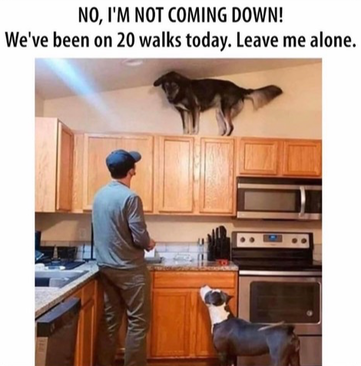 We at West Maui Kumuwai have been hearing a few dog-related things through the coconut wireless lately. So let’s talk about dog poop as part of our continuing series on “quarantine-friendly” Earth Month activities. For starters, mahalo to everyone who has adopted or fostered a dog during our stay at home orders, that is fantastic! If it’s your first dog, you might have noticed they poop a lot. If you already have a dog, then you probably have an existing routine for walking them. Is it ocean-friendly? Now, we’re hearing there’s a LOT of dog-walking going on at the moment, which may have *something* to do with the pandemic lockdown. Before we get into all the fun that is dog poop, we want to stress that you should be aware of the rules in your given area before doing anything that takes you off of your own property. These rules may be constantly changing, so know before you go. Dog poop is an often-overlooked environmental issue. It’s not only gross, it’s essentially raw sewage, and it’s not “natural fertilizer,” despite what you may have heard. It’s full of bacteria and other disease-causing pathogens like viruses and parasites. Did you know that a single dog can produce more bacteria in one day than a person, a horse and a cow combined? Right?! That’s just gross. You step in it and track it into your house? Gross. (Good thing we usually take our shoes off before entering the house here in Hawaii!) Leaving it on your lawn or along sidewalks means that it could end up getting washed into storm drains, then wind up in local waters where you swim and go fishing. Yup, gross.* How do we avoid all this grossness that can affect our health and the environment? The simple solution is to scoop the poop, bag it, and place it in the trash, whether it’s in your own yard or a public place. You can also bury it at least 12” down to keep it out of waterways. However, another observation that has come our way is that there seems to be an uptick in piles of unscooped dog poop around lately, particularly bagged dog poop left around that never makes it to a trash can. Sure, that’s anecdotal data, but feel free to share a report from your neighborhood on our Facebook page if you’ve also made this observation. OK, but WHY do people leave unscooped dog poop? Maybe they think it’s natural so it’s fine (it’s not and also it’s not). Maybe they forgot their bags? (try leaving some by the front door or in your car.) Maybe there wasn’t a trash can nearby? (get one of those poop holding bags you can attach to the leash.) Maybe they were jogging and meant to loop back and get the bag of poop but just didn’t? (seriously, don’t be “that guy,” just come back and get it already.) A lot of these reasons have to do with convenience. If people have a hard time doing the right thing, maybe they need more and better support, such as bag dispensers and trash cans. Can you ask your homeowners’ association to put in poop bag dispensers along with an extra trash can? What else can we do? Seriously, we want to know your thoughts, observations, and suggestions, so please visit our Facebook page and weigh in under the photo meme from this post. If you REALLY want to take it to the next level, we are piloting a dog poop citizen science activity. Yes, you can carry around a clipboard with a datasheet when you walk your dog, while counting and recording piles of unscooped poop. Sounds fun right?! Why are we trying this out? It could reveal “hot spots” for unscooped dog poop, and the areas that are near storm drains and waterways are of the most concern. Our datasheet allows you to record things like this, plus note whether you saw any bag dispensers or trash cans in the area you covered during your walk. Maybe we can take action in these areas, in one form or another. Having data first always helps with the action part. Plus, we think this could be the basis of a solid STEM and environmental education activity. For instance, you could do some math with the data, not to mention turning it into a civics project. Teachers and environmental educators, we’d love to hear your ideas and feedback on this concept. Eventually we could write it up and link the activity to standards. So for now, please download this datasheet and help us test this out. You can email us photos of your completed datasheet(s) and we’ll see where this goes! BONUS: We will send a $25 gift card to one of several essential Maui businesses to the first three Maui households who email us a photo of themselves out walking their dog while collecting data with this datasheet, along with your photo of the completed datasheet too. Please include your mailing address with your email. *written by a cat person who fully acknowledges that cat poop in a box in our homes and near our waterways is also totally gross (and environmentally-harmful). Here's an example of what a filled-out datasheet might look like: We’re been hearing a lot about Victory Gardens lately, as people are understandably concerned about food supply chains, or may not be thrilled about waiting in line to enter grocery stores full of other people we’re supposed to be avoiding at the moment. The Victory Garden movement began during WWI and picked up again during WWII, and it seems to be having a resurgence amidst the coronavirus pandemic. We’re hearing that new or resurrected gardens have been popping up so much on Maui that it’s becoming difficult to find seeds! So, West Maui Kumuwai is here for you with some tips on how to make your garden more ocean-friendly. And we’ve compiled some resources below for those who would like to explore more. Growing a garden is a great educational activity for one, and aside from the obvious benefit of producing food, it will get you out of the house, even if it is just your own yard! Being ocean-friendly is all about how we use water as well as making better choices about what ends up going into the water we do use, because that water can end up in the storm drains which empty into the ocean. Here are some general tips to follow to make your garden more ocean-friendly: • Choose fertilizers and pesticides that are less harmful to the environment The nutrients and chemicals typically in fertilizers and pesticides can harm coral reefs, but there are some better options out there. West Maui Kumuwai has compiled a list of ocean-preferred products on our website, here. These brands were selected based on EPA guidelines for toxicity and environmental hazards, posing the lowest level of risk. Many comply with USDA’s organic standards as measured by OMRI (omri.org), the Organic Materials Review Institute. We also considered the products’ mobility in soil; those that have fewer active ingredients that can leach out of the root zone will contribute less to water pollution. Look for these when you’re out shopping for your Victory Garden! • Use less water Using less water not only conserves water (obviously...), but less water means less runoff, and less runoff means less pollutants get picked up and washed into storm drains, ultimately ending up in the ocean. If you overfertilize your lawn, the next time your sprinkler goes off it could carry that excess material into the nearest storm drain. Think about those greasy oil stains in your driveway or the ones you’ve seen in the shopping center’s parking lot. Next time it rains, or when a sprinkler sprays water in that area, that toxic junk could get carried into the nearest storm drain as well. Not to mention garbage and other forms of debris that can end up in drains too. Our stormwater runoff is not treated, and in many places in West Maui it is carried from a drain to the ocean rather quickly and efficiently. Next time you’re out on a walk, see if you can figure out where the storm drains that you encounter go, and where they discharge via pipes along the shoreline. Visit our Water Smart Outdoors page for tips on reducing your water use. • Choose the right plants Choose native or drought-tolerant species of plants, and choose the right plant for the right place. It is not only culturally-appropriate to choose native plants, but it will save water (and money) as they are already adapted for the local habitat. More tips and links can be found on West Maui Kumuwai’s Plant Pono page. BONUS! The first four Maui households who send us a photo of themselves with their garden (that we can share on our website & social media) will receive $25 gift certificates to Ace Hardware in Lahaina, to help you get the ocean-friendly supplies you need! Just email your photo to us (feel free to share it on your own social media too, using #MauiEarthMonth2020) and include the name of the person who will be going in to Ace to pick it up and do the shopping. Ace has special hours at the moment (8 am - 5 pm) and is limiting shoppers' access to 10 at a time. Many thanks to Manager Martin Hussey and his team for all the support over the years, check them out with their PPE ready to socially-distantly help you! RESOURCES:
Gardening and gardening-related curriculum:
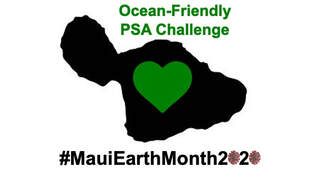 To kick off a series of quarantine-friendly Earth month activities, we’re starting with an activity for K-12 students who are currently being homeschooled due to the COVID-19 pandemic. This page has a rundown of resources you can explore with your kids, related to our goal of promoting community action to reduce the land-based pollution that harms our coral reefs. The larger message we’d like to share is that everyone can play a role in protecting our oceans and reefs – there are many actions you can take that will make a difference. For Earth Month, we’re holding a social media messaging challenge, and for the first bunch of Maui-based K-12 students and families who participate, we will be giving away quite a few $25 gift certificates to several Maui restaurants that are still open and providing take out service (CJs Deli & Diner, Sea House, and Down the Hatch). We also have many gift certificates to dive and sporting goods shops to help families purchase gear for exercising and fishing purposes, and to Ace Hardware in Lahaina to support yard and garden care. To enter, all you have to do is post a photo of your creation (details below), share it on your preferred social media account(s) using hashtag #MauiEarthMonth2020, and drop us a line (email WestMauiKumuwai@gmail.com) with a screenshot along with your name and address so we can either mail you a gift certificate or put your name down on a list at the place where you can use it. This will be done on a first-come first-serve basis once we receive your email (one entry per household please), as supplies will be limited. Check out the other posts in our series for additional ways to "win" a gift card. How to participate: Choose one of the ocean-friendly behaviors from the list below, and use your forces of creativity to make a PSA (“Public Service Announcement”) of your own, in any form you like. It could be a simple drawing, a poster, a video, a story with a moral at the end, a fact sheet, a diorama…whatever! Just make it and share it. All we ask is that it has a “take action” component and highlights one specific thing that someone could do – see the examples below. Spend some time learning about the issue before you make your PSA. Want some inspiration from the Division of Aquatic Resources? Check out these PSAs here or for a more recent and relevant topic, check out this very official one on hand-washing from the CDC, or this much sillier one from the Hawaii Department of Health. Ocean-Friendly Actions for Earth Month PSA Creation Activity: Choose one of the following actions people can take to protect our oceans and reefs, and create a message encouraging people to do it. How and why should they take action?
To explore these issues, you can start here on West Maui Kumuwai’s “what you can do” page , and also visit these sites:
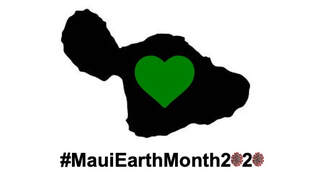 Let’s face it. This really sucks. It’s traumatic. We can all agree on that. “Normal” is out the window, and we don’t know when we’ll be able to resume whatever will be left of the “normal” we once knew. Hopefully we can make some improvements to the systems that are failing us and create a new, better “normal.” But in the meantime, we’re stuck with whatever this “normal” is, which obviously varies depending on our individual situations. Everyone is being challenged differently, everyone is coping in different ways. Amidst all this, so many people on Maui are stepping up to help others while adhering to the social distancing requirements. That needs to remain our top priority. Recognizing that things are operating differently right now, we at West Maui Kumuwai wanted to assess the situation, to determine what is and is not appropriate for us to be doing at the moment. Seriously, who is *really* thinking about stormwater runoff and land-based pollution right now? *Looks around* Exactly. And that’s fine. However, we know that so many people do care about our environment, and it is Earth Month. So, how can we build some ocean-friendly activities into our current reality, in an unobtrusive way that respects everyone’s priorities and circumstances? We did some “research” of sorts. We looked around, and we noted what people are doing, how they’re doing things differently, and how they’re doing new things. We came up with some ideas we’ll be sharing in more detail through a series of posts on our website throughout the month. Here’s a rundown, based on the new reality in which we find ourselves, of activities you may already be doing, that can be made more ocean-friendly with minimal effort:
Stay tuned. Finally, one thing we will be doing that we wanted to share up front is giving back to the essential businesses that have supported us through the years. Instead of asking local businesses for prize donations this year, we’ll be using the funds that would have supported our public events to purchase gift certificates from places that are still operating at the moment, particularly West Maui restaurants. For starters, we’ll be giving these out as part of an Earth Month activity for kids being homeschooled. Read about how you can participate here; check out all the other posts too to see how you can participate in other #MauiEarthMonth2020 activities and receive a gift card. We would like to thank the Doolin Foundation for Biodiversity for their generous contribution to West Maui Kumuwai and the West Maui Ridge to Reef Initiative. Their gift means a lot to us and the many Maui other conservation organizations they support. It was great meeting Eric Doolin and Janna Phillips (below), they are champions for Maui's biodiversity!
|
News and EventsThe latest happenings in West Maui. For upcoming events, please visit our Facebook page. Archives
October 2020
Categories
All
|

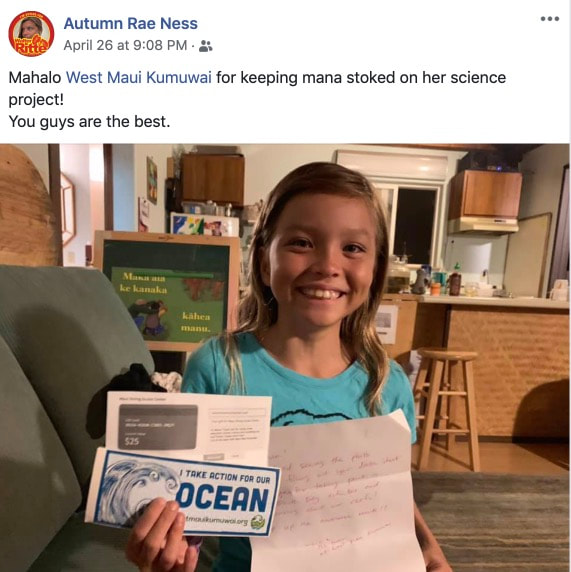
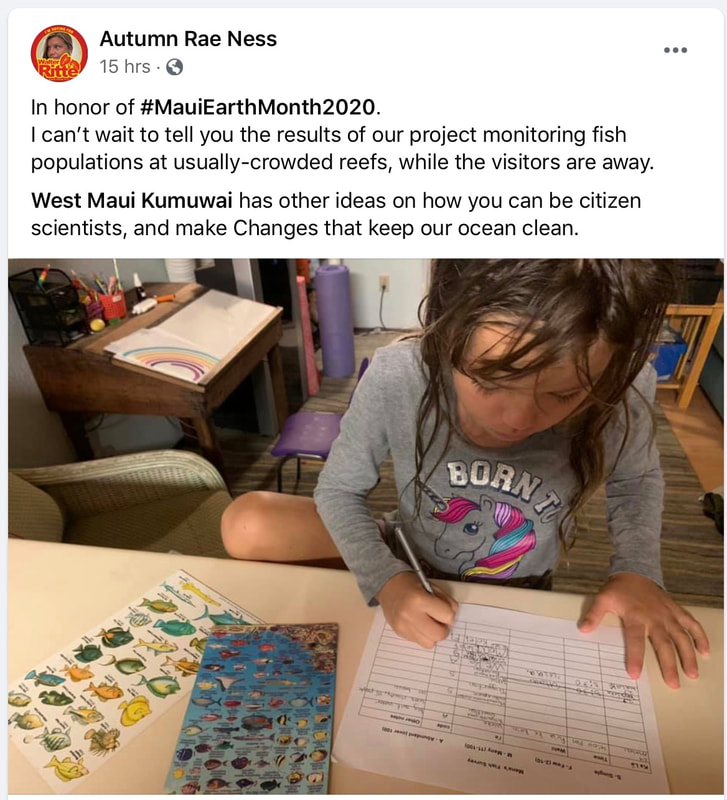
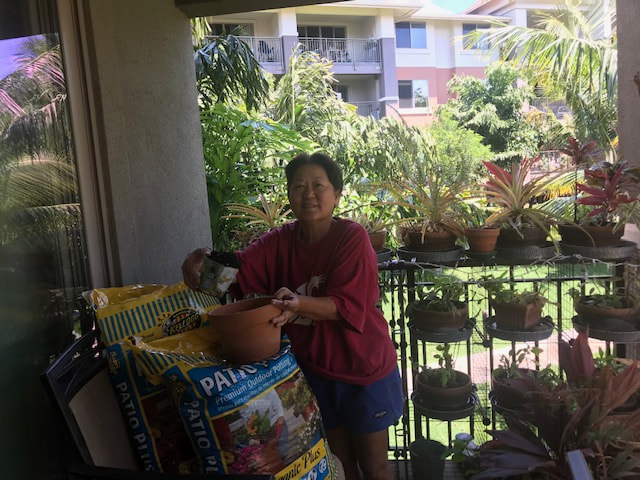
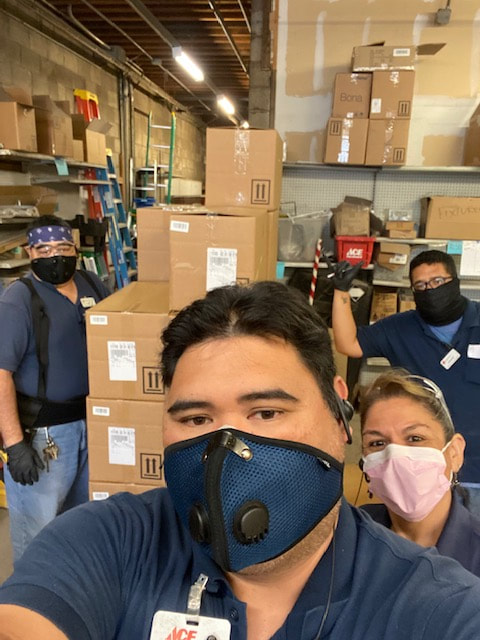
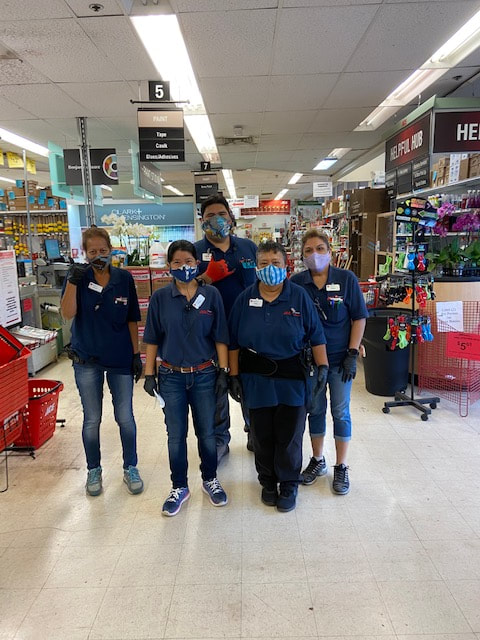
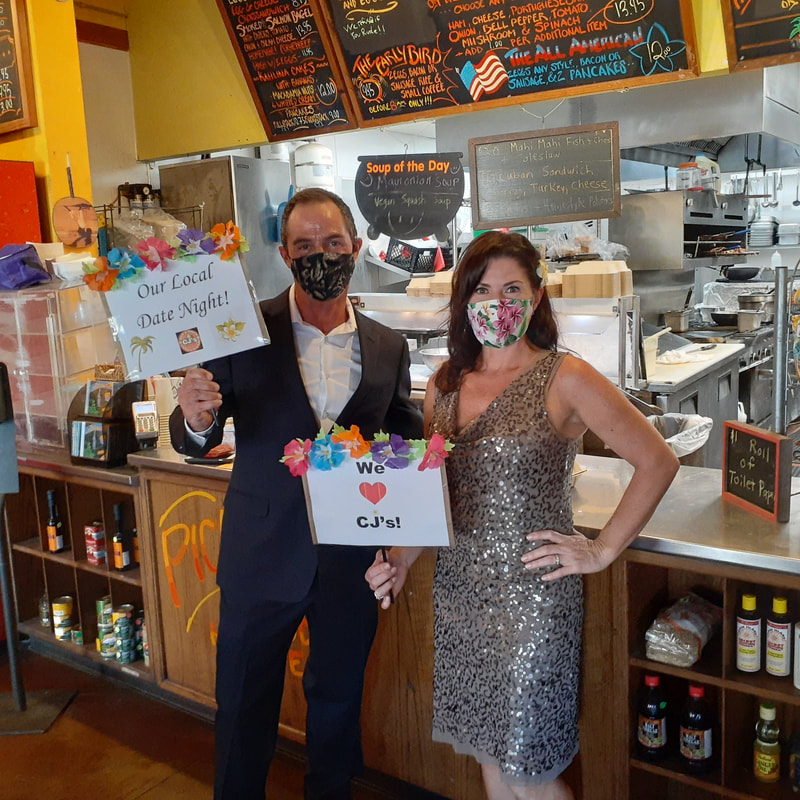
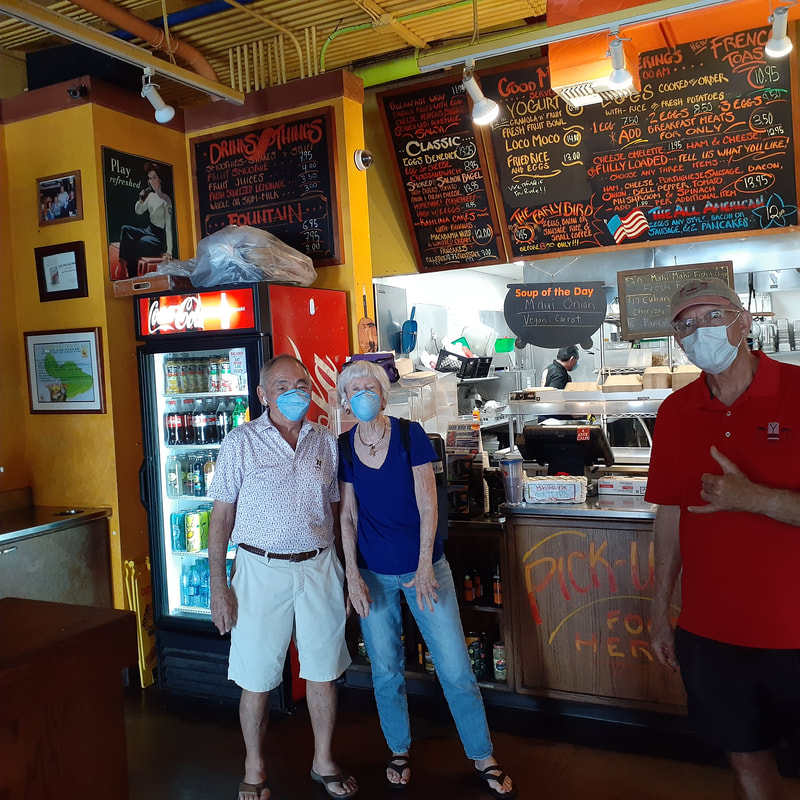
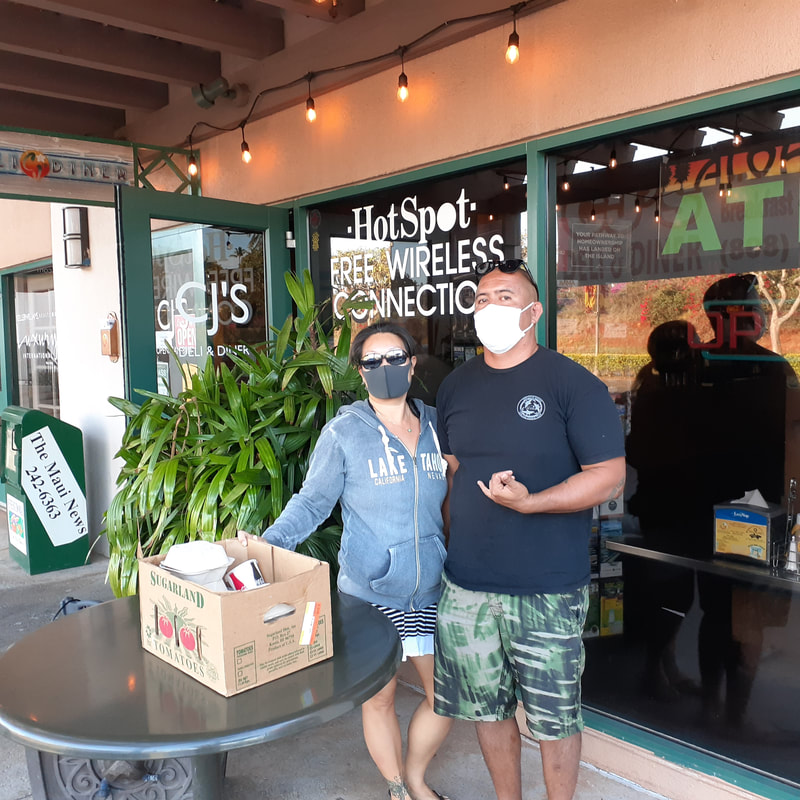
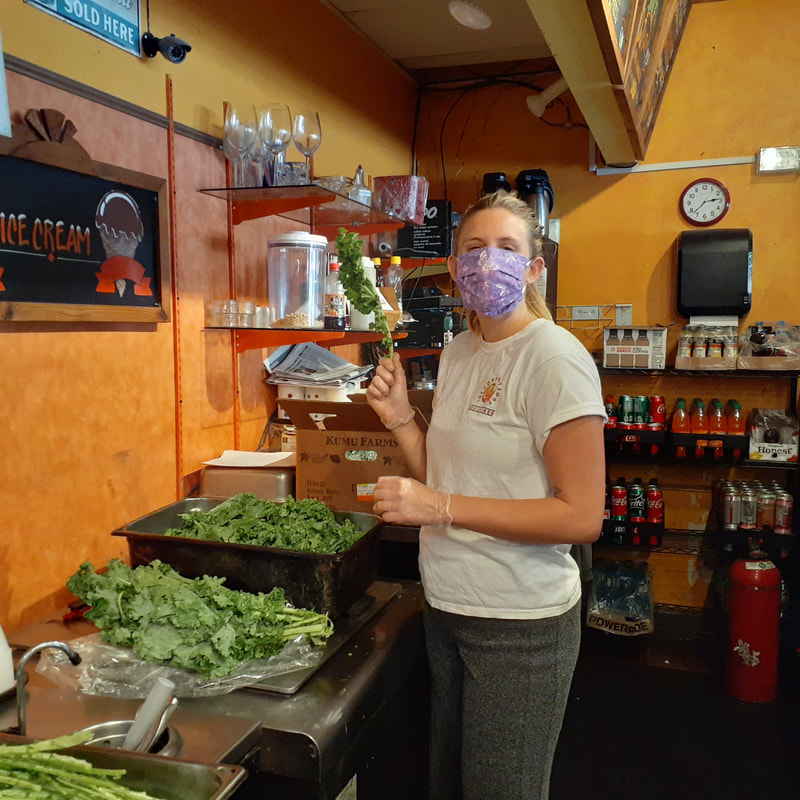
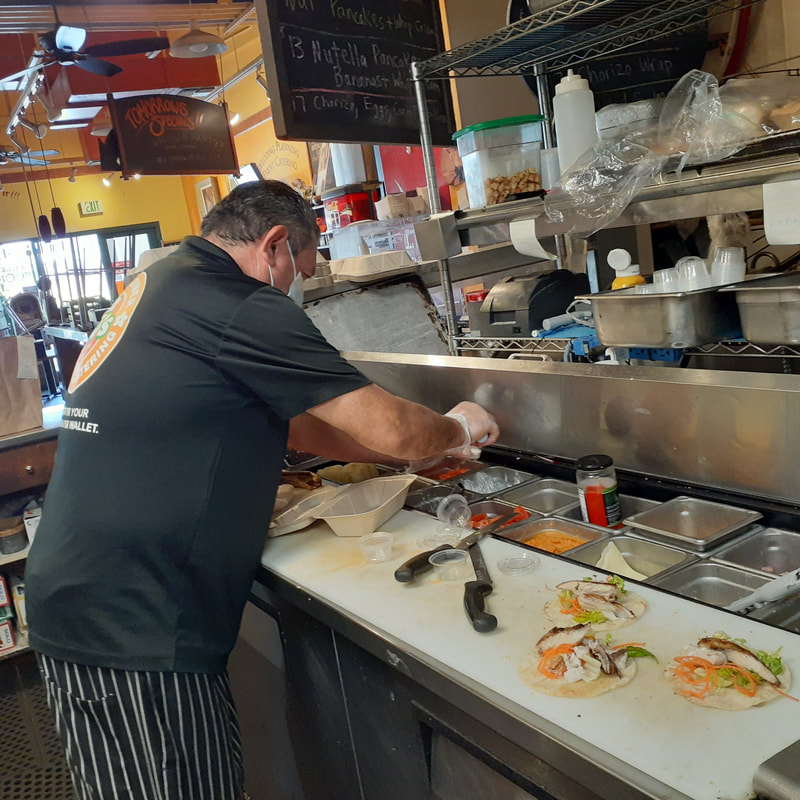
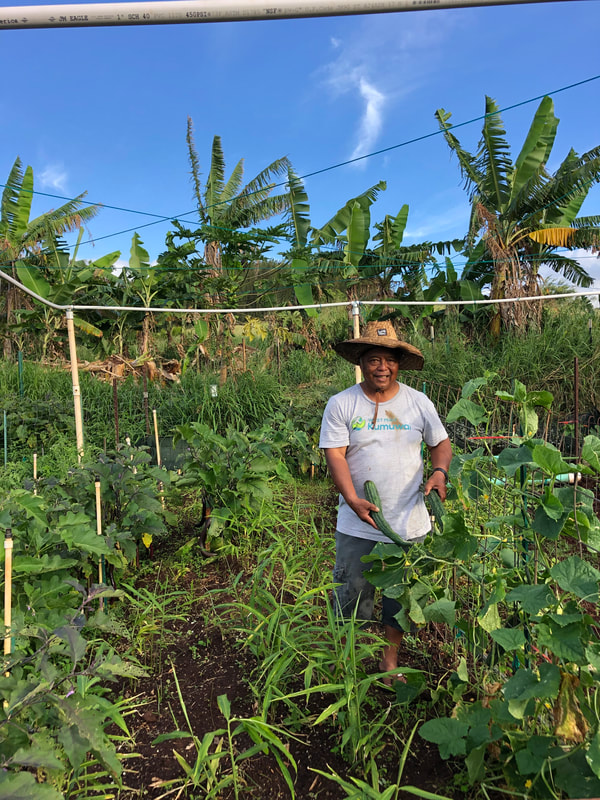
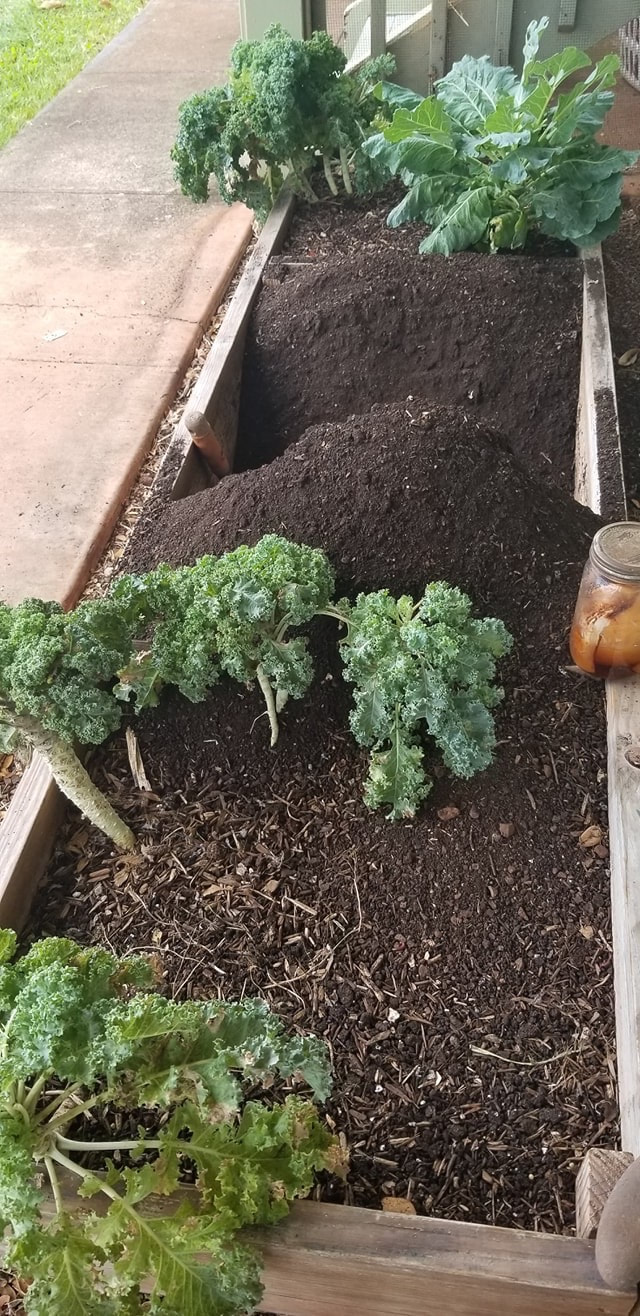
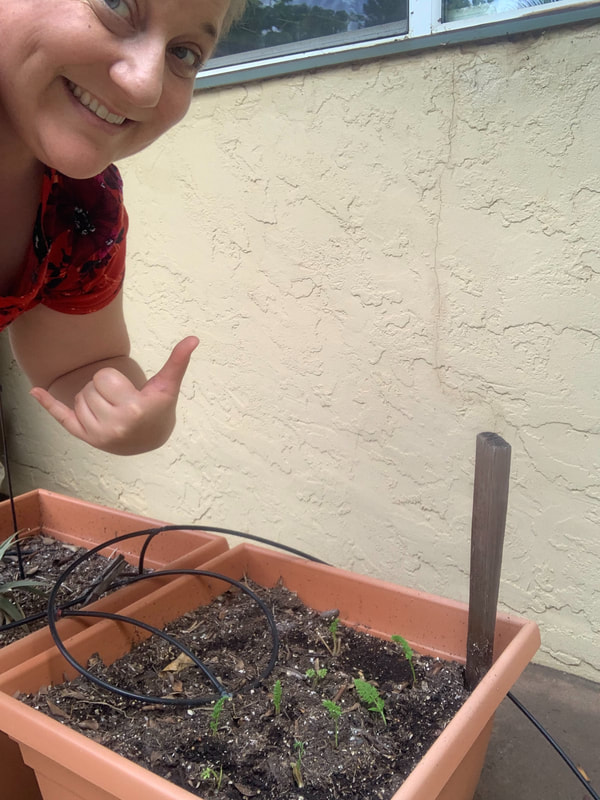
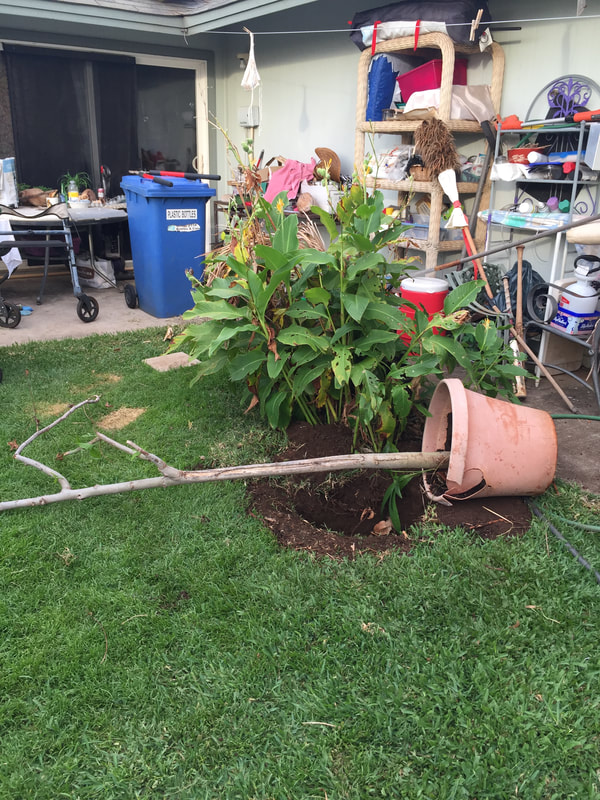
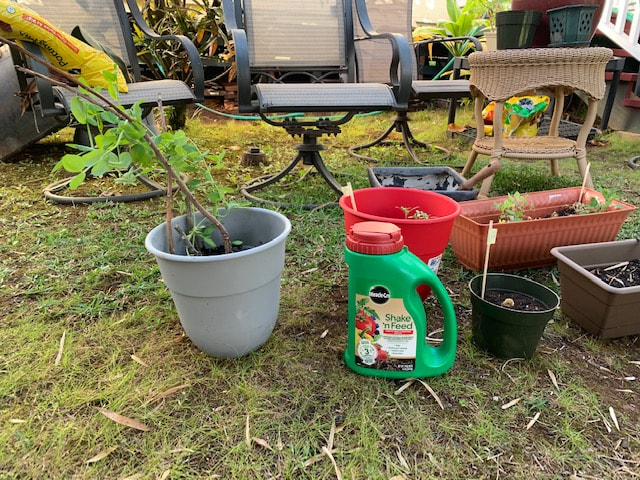
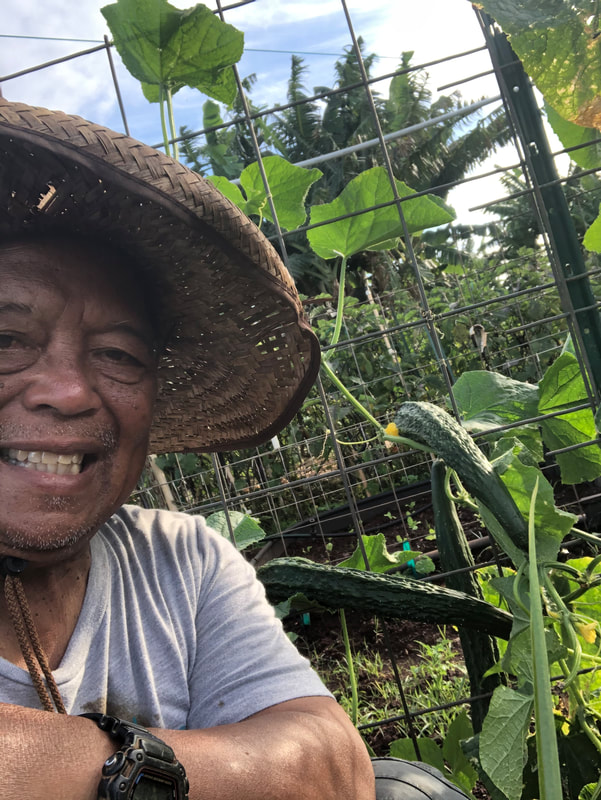
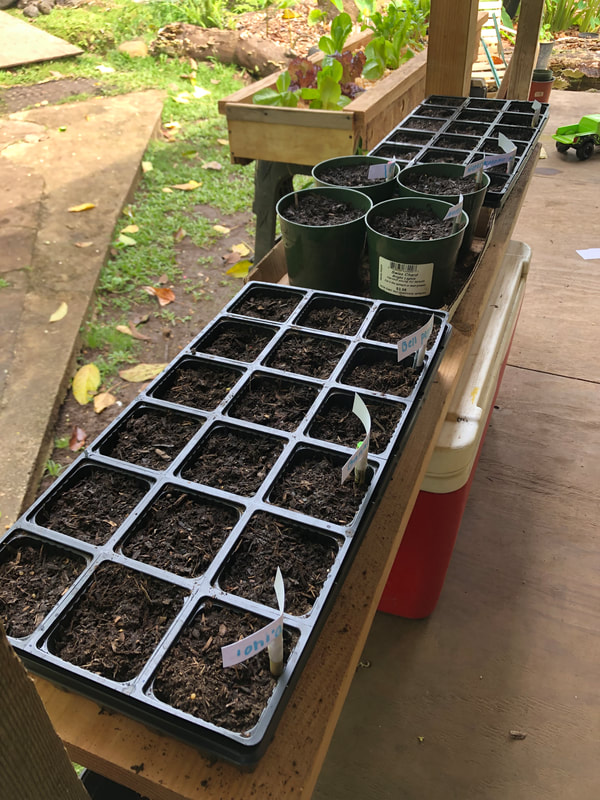
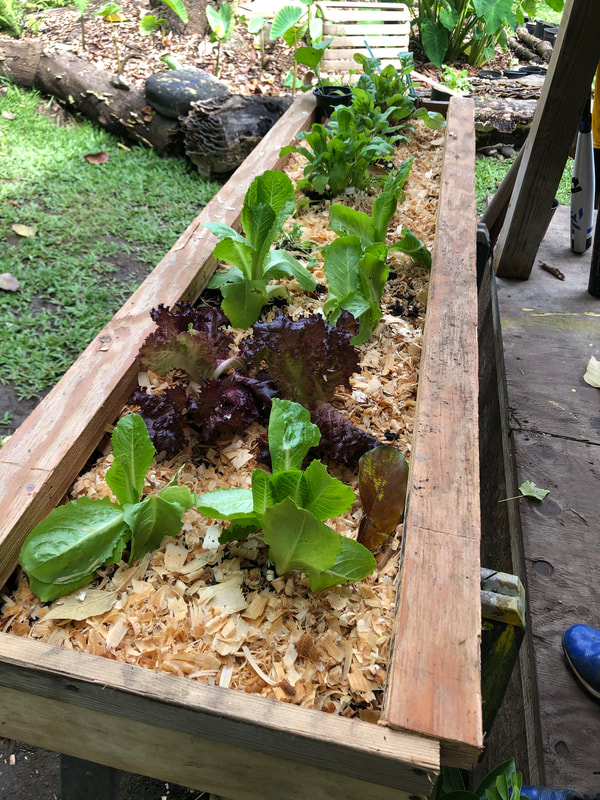



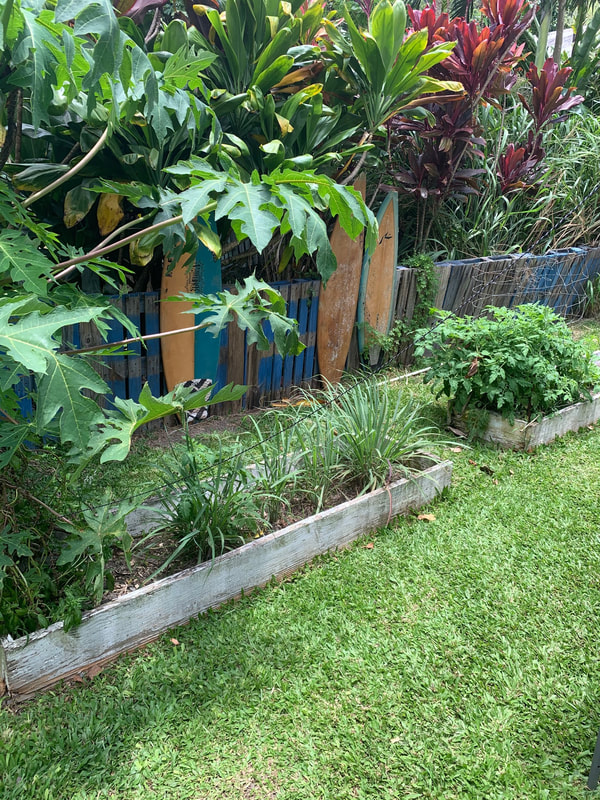
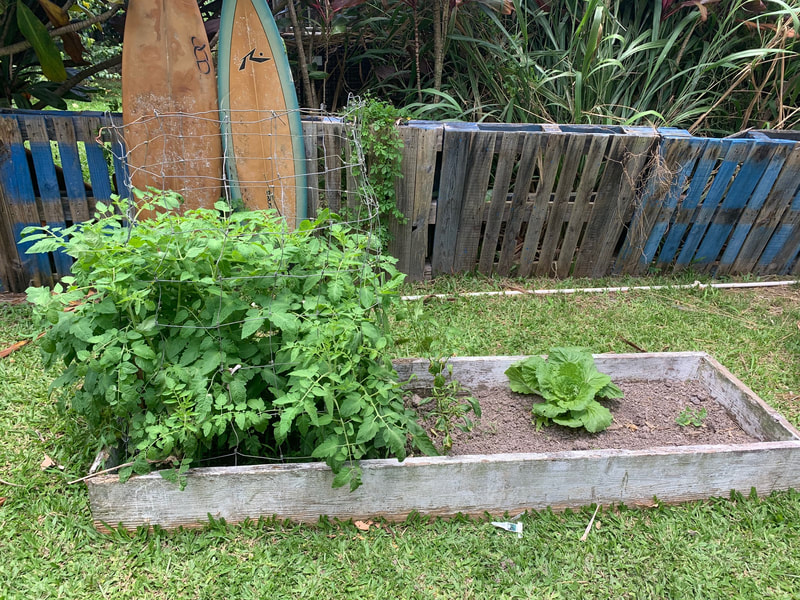
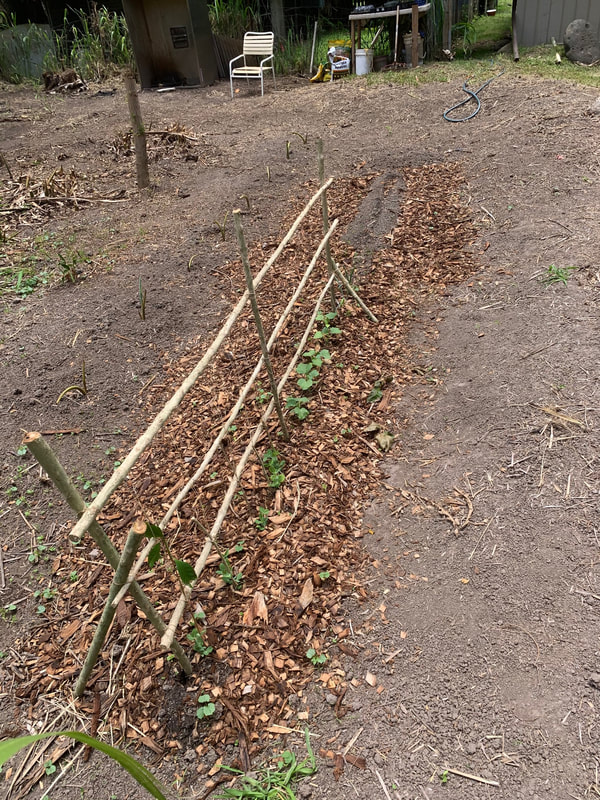

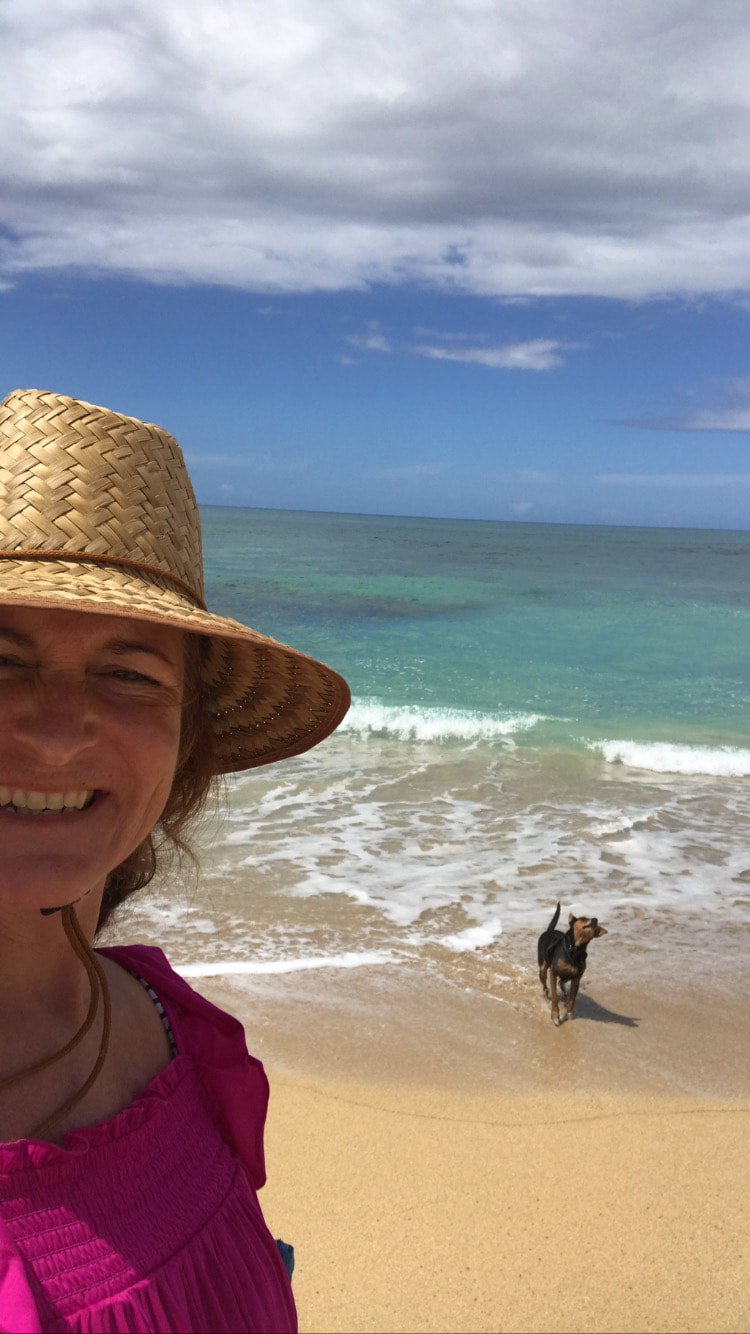
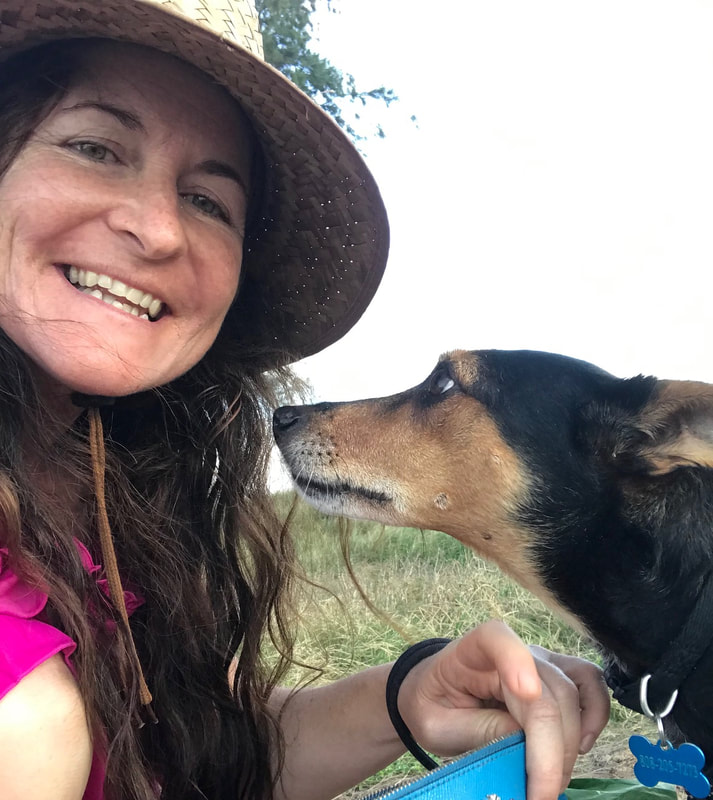
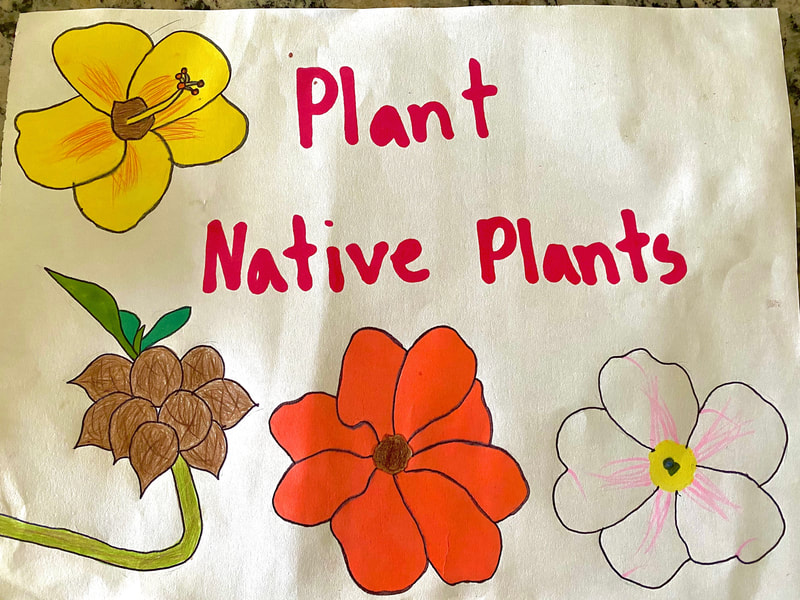
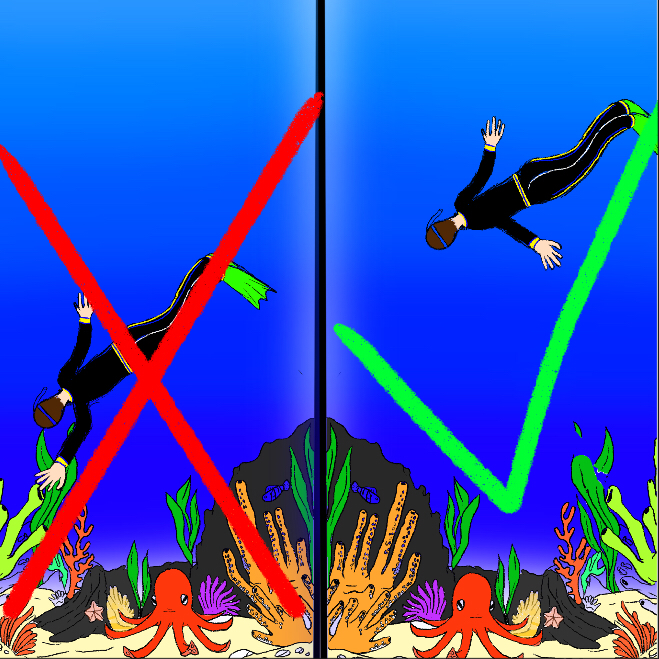

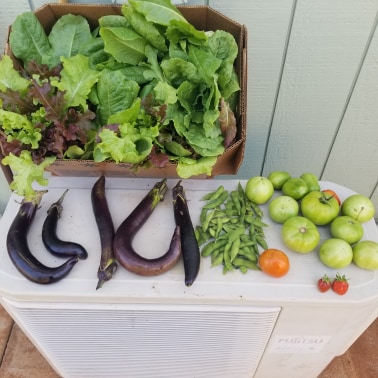
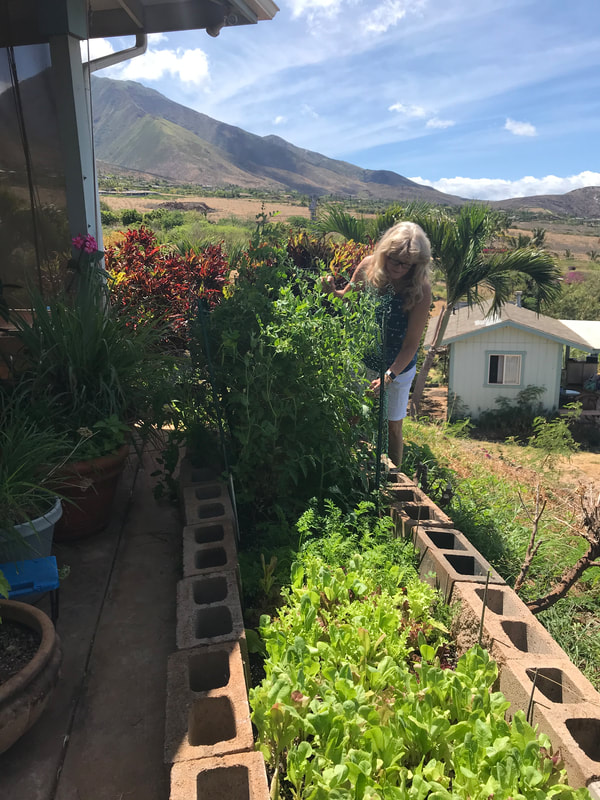
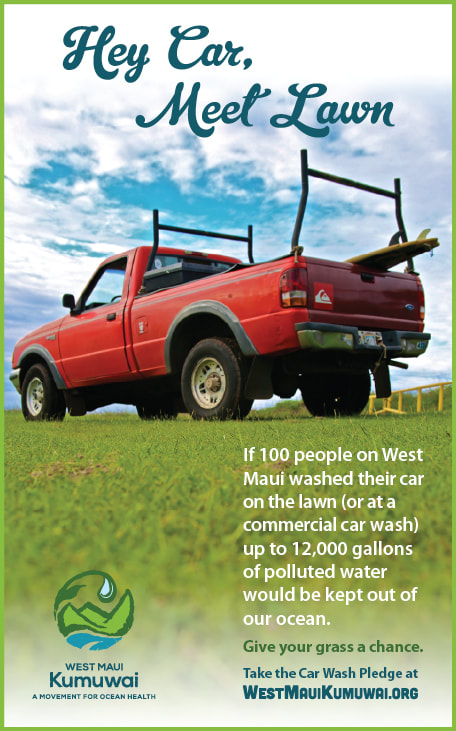
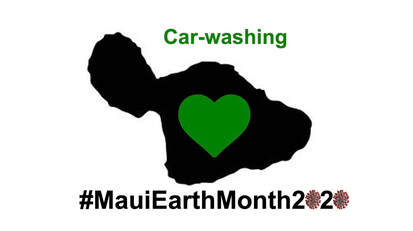
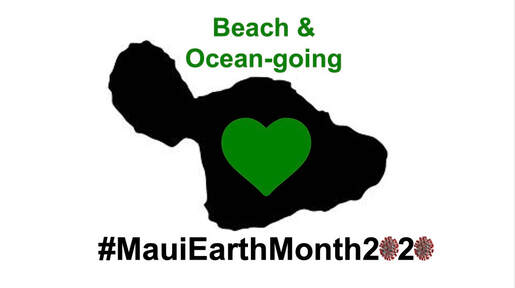
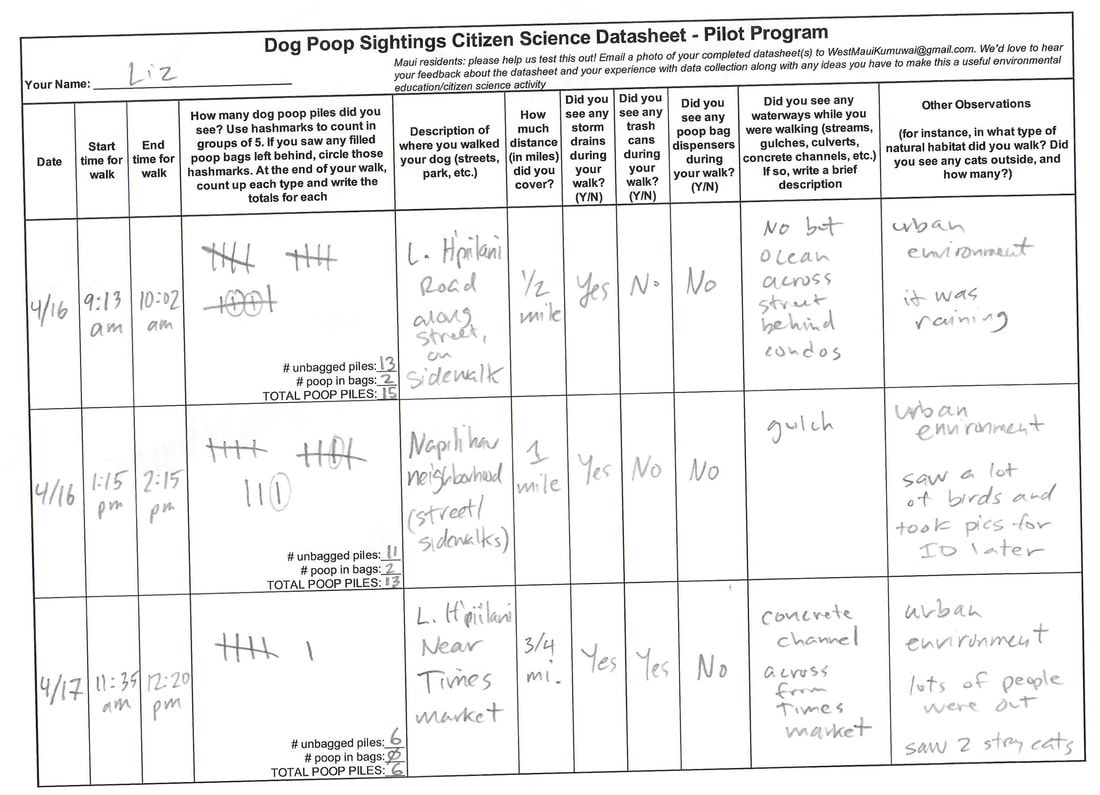
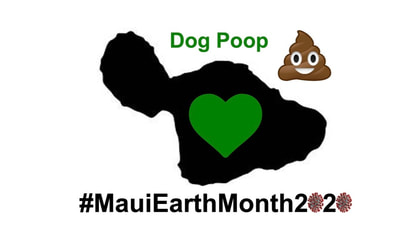
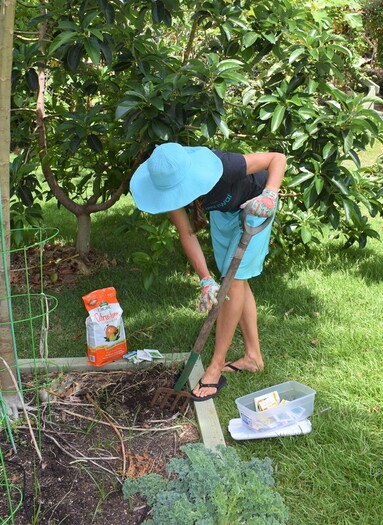
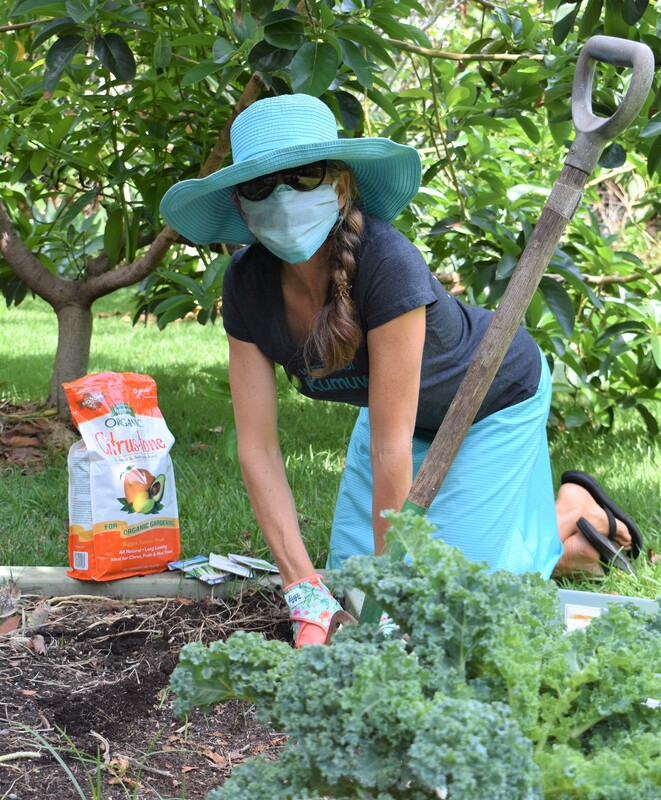
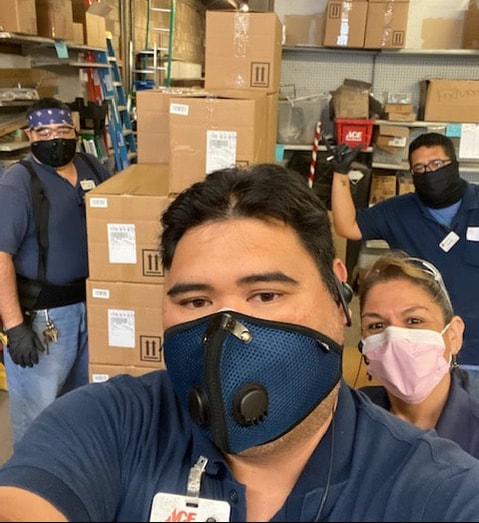
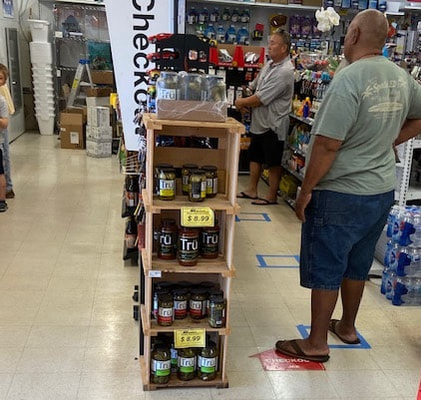
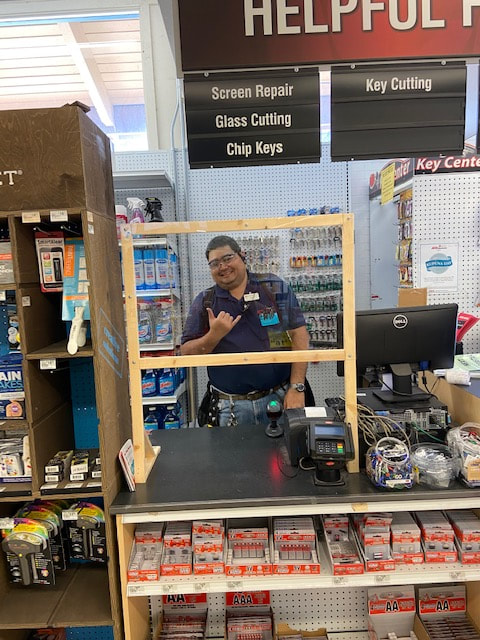
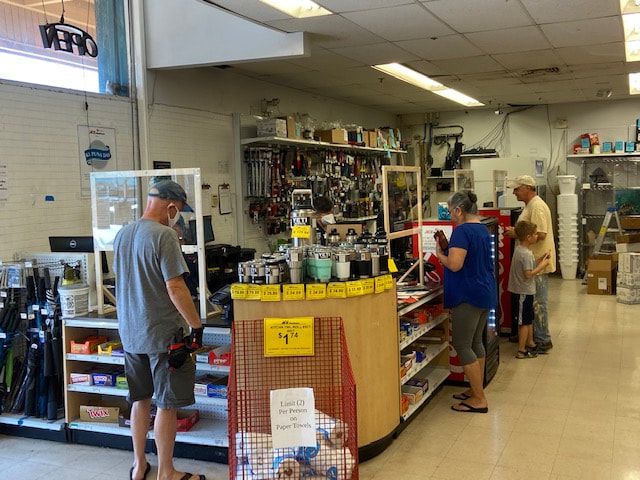
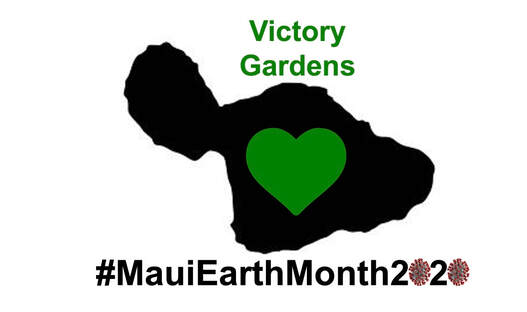
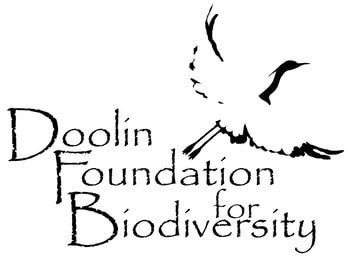
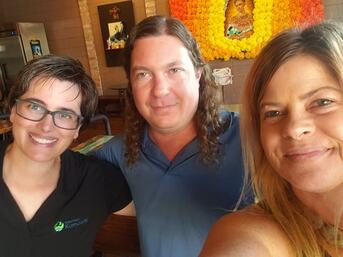
 RSS Feed
RSS Feed